
Surgery can be really daunting, especially when you factor in the fact that most of it takes place while you’re asleep. Anesthetic can do some crazy things to your body, but the good news is that these are usually only short-lived and will wear off after you wake up. Don’t worry, the doctors know what they’re doing.
Before you go under

If you’re someone who gets nervous about medical procedures, under going surgery can be pretty daunting. Before you go under, you might be filled with nerves and not sure how the whole process is going to go. But, your doctor will talk you through everything and make you feel much better.
You might see some big needles

This can be a pretty scary thing to look at, especially under those harsh surgery lights when you’re lying on the operating table. If you see some big needles try not to panic. They might use one of these to administer the anesthetic but you’ll be out before you know it.
You’ll need to remove all your jewelery

If you’re someone that wears a lot of bling or has several piercings, you’ll need to take all of these out before you undergo surgery. This is to prevent any risk of infection or interference with medical equipment, you can look fashionable someplace else.
Get ready to count down from ten

Once you’re settled on the operating table and all the pre-op stuff has been done, the doctors start to administer the anesthetic. You’ll then be asked to count down from ten until you fall asleep. You won’t feel it entering your system but you will notice your eyelids starting to feel heavy.
9, 8, 7, 6….
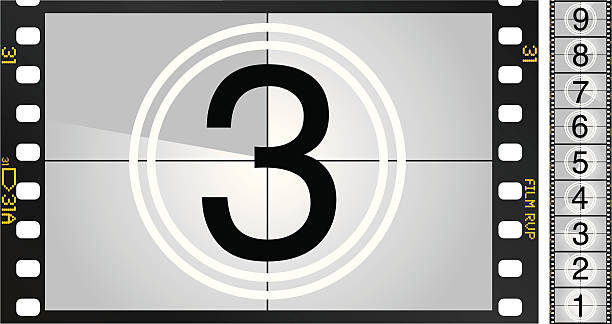
You might be asked to count down from ten, but it’s unlikely that you’ll even make it to five. Once the body starts to feel the effects of the general anesthetic you won’t be awake for too much longer. It’s not even as obvious as falling asleep, you are just awake one minute and then you aren’t.
A smell of strawberries?

If they aren’t administering the anesthetic via a needle, the medical staff might place a mask over your face and ask you not just breathe normally. If you smell a sweet smell of strawberries, you aren’t going crazy; a type of anesthetic commonly used for surgery called Sevoflurane has a sweet smell.
Doctors might draw on you
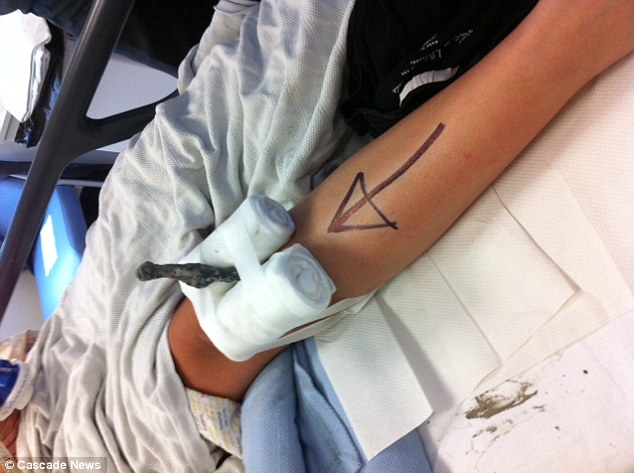
If you wake up with some new ink after surgery, don’t worry, it’ll wash off. Once you are unconscious doctors might draw arrows, circles and dotted lines on you so that they don’t end up performing surgery on the wrong limb, that would be a real waste of time.
A free shave?

If you are getting stitches or getting opened up on an area of your body that usually has hair, you might even get a free leg shave, which is a real bonus. However, if the surgery is on your head, you may also wake up with a bald patch…
You might spill some secrets

Studies have shown that before a patient is knocked out, or when they are using pain relief such as laughing gas, they might even start talking gibberish. Have you ever seen those super funny videos of people getting their wisdom teeth taken out and they start telling all their secrets?
Loss of consciousness

This one probably goes without saying but, if you are undergoing surgery with general anesthetic, you will lose consciousness. However, you can also receive a local anaesthetic which just numbs the area that needs worked on so you are still awake but won’t feel anything.
Pain relief
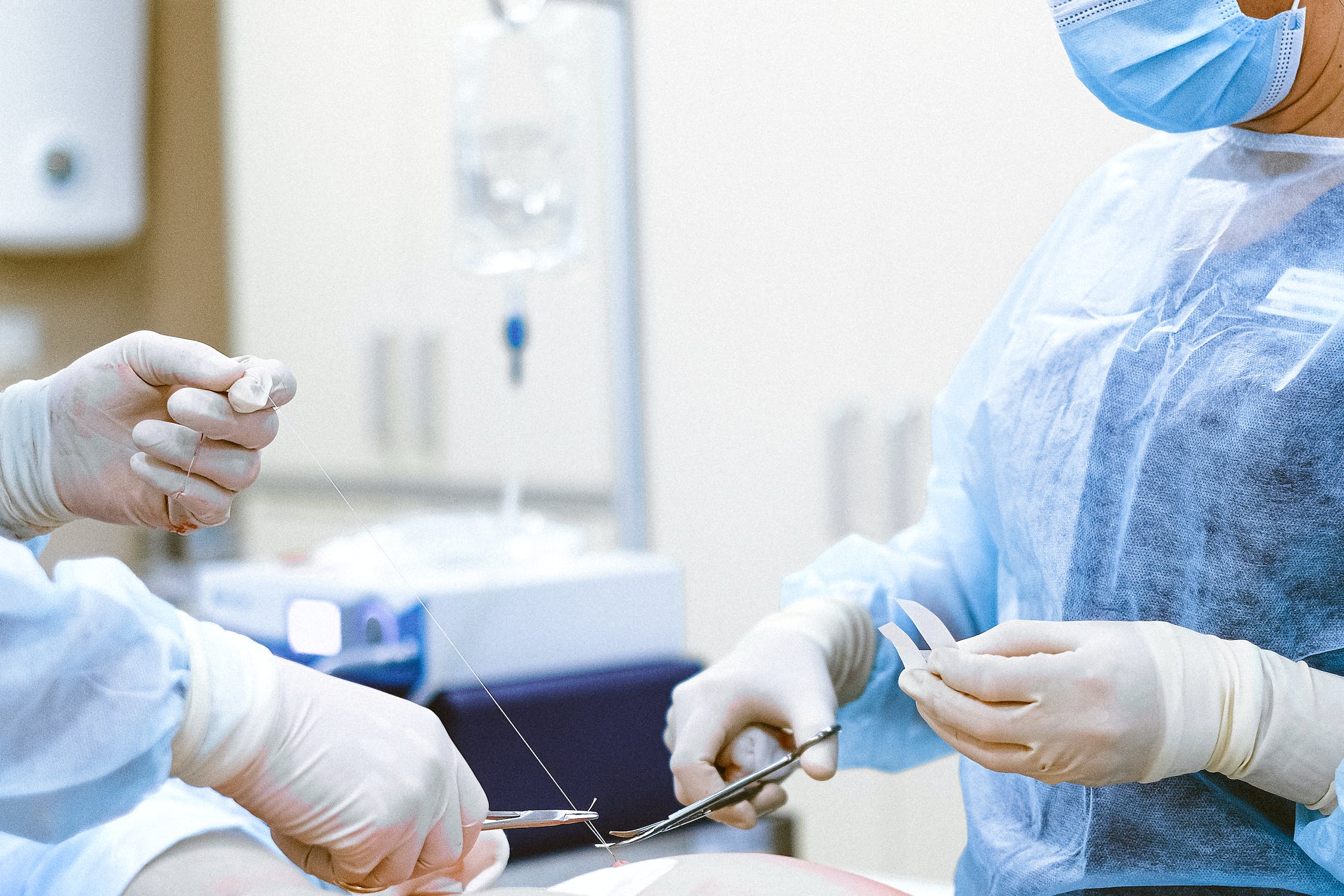
Yup, that’s the whole point. When you undergo any type of anesthetic, you won’t feel any pain. If you are awake during your procedure, you might feel some tugging etc but this will feel far away and not like it’s happening to your own body.
Shivers and goosebumps

Sometimes when people are unconscious, they will get goosebumps and start to shiver… and this isn’t just because that metal operating table is cold to touch! Being put under anesthesia affects the body’s temperature and can cause you to run cold.
Vomiting

Some people are allergic to certain components of anesthesia and may experience side effects such as vomiting as soon as they come into contact with anaesthetic or after they wake up from surgery. The tricky part is that there is no way to know you are allergic until it happens. Don’t worry though, there are many alternative options.
Amnesia

After you wake up from surgery, you definitely won’t remember it, and why would you want to? However, in the days after surgery, you might experience some short-term memory loss and in some rare cases this has even been known to cause permanent amnesia.
Constipation

Anesthesia slows down the digestive system. Think of it like all of your organs temporarily going for a nap, just like you are. So, when you wake up it may take some time for your bowel to get going again, so don’t be surprised if you face some issues going number two.
Muscle relaxation

Anesthesia causes your muscles to fully relax. This is so that it is easier for surgeons to move your body in whatever way they need without hurting you or causing any muscles to go into spasm. This is essential – you really don’t want to punch a surgeon in the face without even knowing it.
Lower heart rate

Anesthesia is designed to prevent your vital organs from experiencing any trauma during the surgery. Of course, when awake, if you were literally cut open your heart rate would go into overdrive and adrenaline would start pumping round your body. Anesthesia keeps your heart rate normal so that your body doesn’t even know what’s happening.
Slow breathing

Whilst under anesthesia, our breathing will slow, helping to keep your heart rate low and your body generally relaxed. An anaesthetist is always on hand during surgery to monitor a patient’s heart rate, breathing and other vitals so you are always in super safe hands.
Loss of sense of time

If you’ve ever undergone surgery whilst under general anesthetic, you will know that one minute you’re counting down from ten, and the next you’re in a cozy bed with a nurse telling you to wake up. Honestly, it’s the best nap you’ll ever have. Some surgeries can last several hours, but you won’t even know time has passed at all.
Blood pressure changes
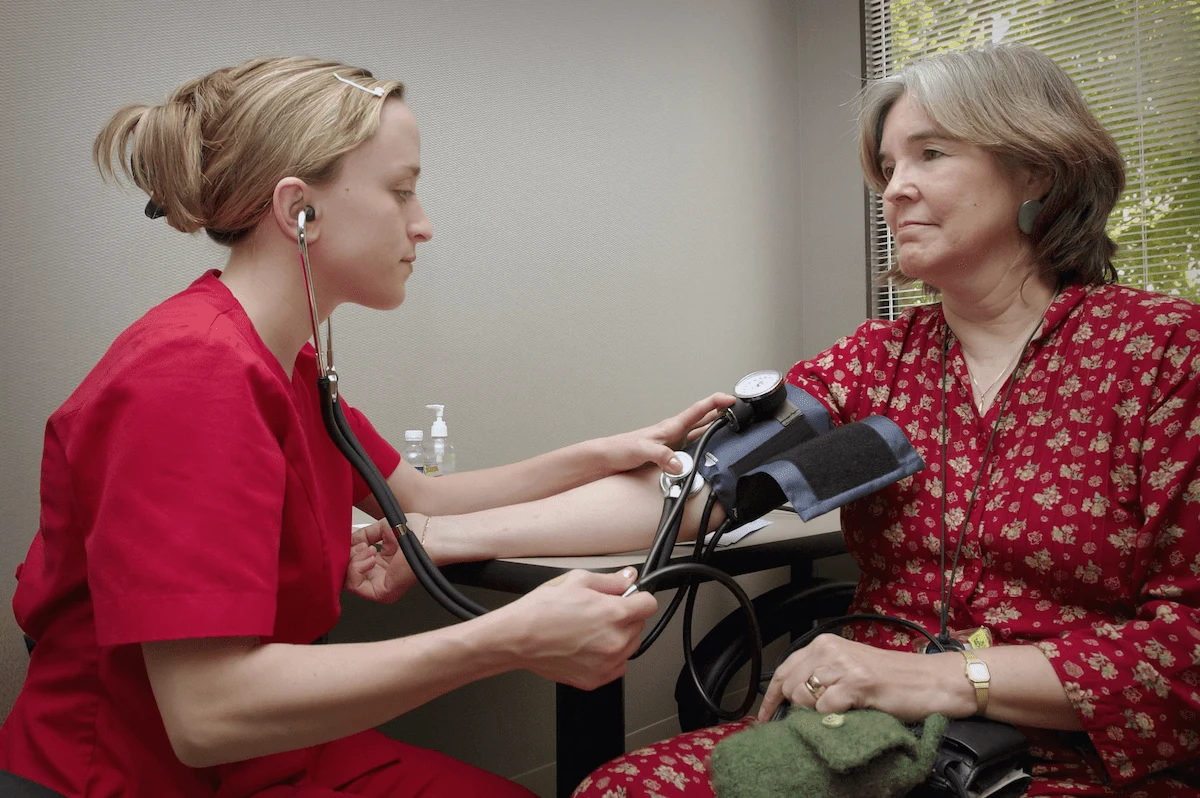
Blood pressure is closely monitored throughout the anesthesia process to ensure that it remains within safe and acceptable ranges. Your blood pressure may go up or down depending on how your body reacts to the anesthetic but will return to normal shortly after you wake up.
Temperature changes

Operating rooms are typically kept at cooler temperatures to reduce the risk of infection and to maintain a comfortable working environment for the surgical team. This cooler environment can make you a little chilly while you undergo surgery but, don’t worry, you won’t feel a thing.
Reduced bladder function

If you wake up from surgery and are busting for the toilet, hard luck. It’s really common for you to wake up from surgery desperately needing to pee but unable to go, this is just caused by how the anesthesia affects your nerve-endings and will go away so that you can use the toilet in peace.
Pupil dilation
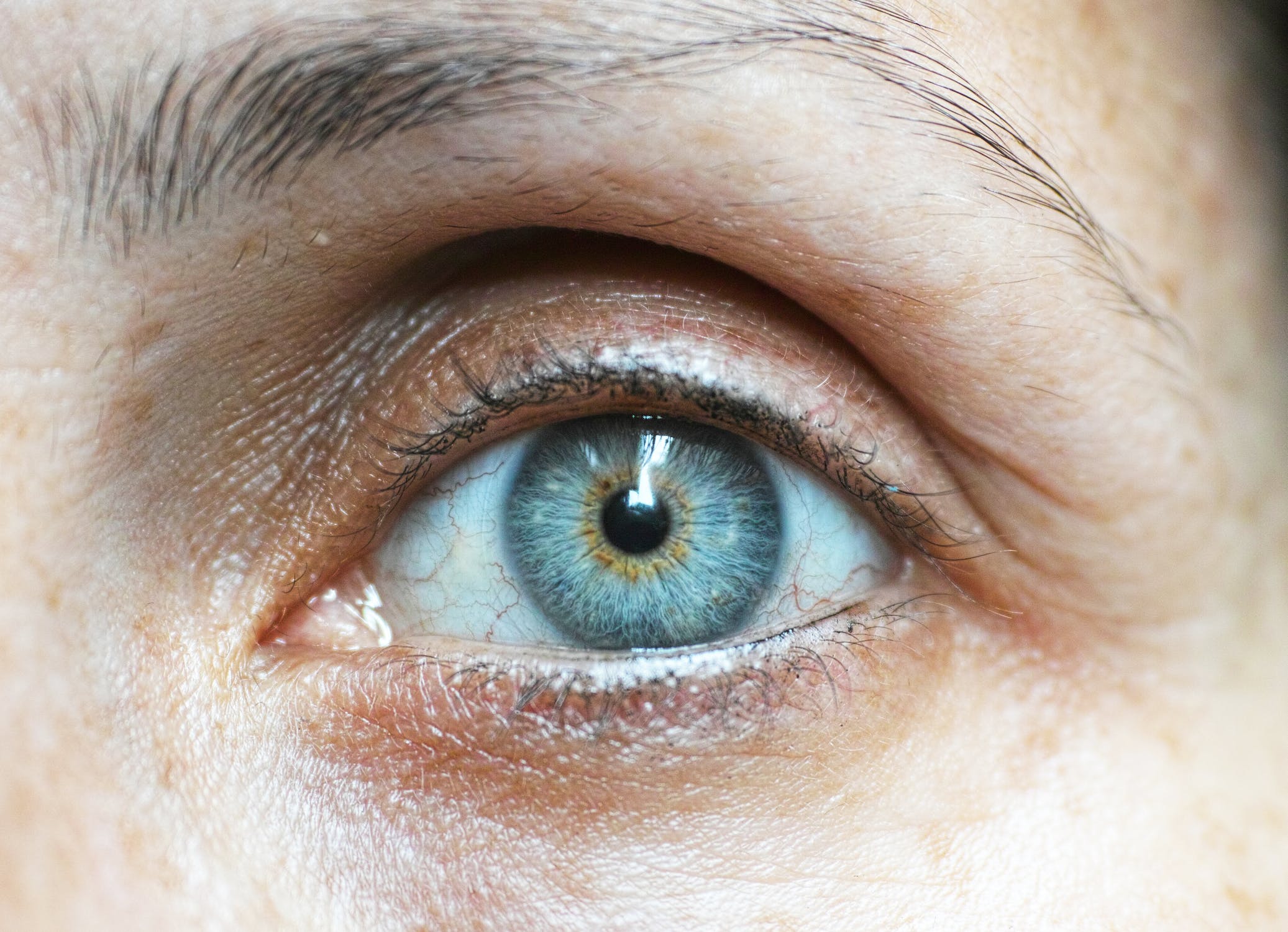
This happens because these medications block a natural signal that makes your pupils normally become smaller when there’s bright light. So, your pupils temporarily get larger during surgery because of the anesthetic – they usually go back to their normal size once their effects wear off.
Suppressed immune response

Surgery itself is a significant physical stressor on the body. The trauma of surgery, tissue manipulation, and blood loss can lead to a stress response, which includes the release of stress hormones like cortisol. Don’t worry, this shouldn’t last too long and you’ll be in tip-top shape before you know.
Dry mouth

This can happen for several reasons. It can be because of the medication itself, any tubes that may have been down your throat and also the fact that you probably haven’t had a drink for hours. Make sure you have a nice ice-cold soda beside your bed for when you wake up.
Sore throat

During surgery, a tube goes into your throat to help you breathe. This tube can rub against your throat and make it sore. The sore throat is usually temporary and gets better in a few days as your body heals. If it’s really bothering you, you can talk to your doctor, and they can suggest ways to make it feel better.
Reduced muscle tone

Anesthesia drugs can temporarily affect muscle function. They can relax muscles and lead to muscle weakness during the period when the drugs are active. Don’t worry, it doesn’t mean that your super toned abs (that you definitely have) will disappear after you have surgery.
Memory loss

The use of anesthetics during surgery can cause temporary memory disturbances, but these typically involve short-term memory and are not the same as permanent memory loss. The specific memory-related effects of anesthesia can vary depending on several factors, including the type of anaesthesia used, the individual’s response to the drugs, and the duration of the surgery.
Vivid dreams

Wait, are you in school in your pajamas again and you’ve just failed a pop quiz? No, don’t worry, you’re probably just having a vivid dream brought on by the anesthesia. This happens usually when you are coming around after surgery and, although it can be a little confusing, it’s nothing to worry about.
Changes in brain activity

You know those machines they have in the hospital with all of the waves on it, yeah, those might go a little crazy when you’re in surgery. Again, this is totally normal and something the anaesthetist will monitor throughout your procedure. Your brain activity will return to normal as soon as you wake up.
Blood clots
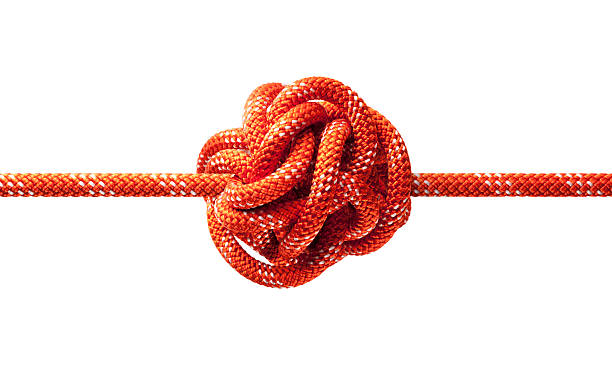
Blood clots during surgery can happen, but they’re not very common. Whether they occur depends on the type of surgery and the patient’s own risk factors. Some surgeries have a higher risk, like joint replacements, with some people are more likely to get blood clots because of their age, health, or other factors.
Protection of vital organs

Anaesthesia plays a crucial role in protecting vital organs during surgery by ensuring that the patient is unconscious, pain-free, and relaxed. It also allows for precise control of physiological parameters, which helps maintain the stability and well-being of vital organs throughout the surgical procedure.
Controlled ventilation
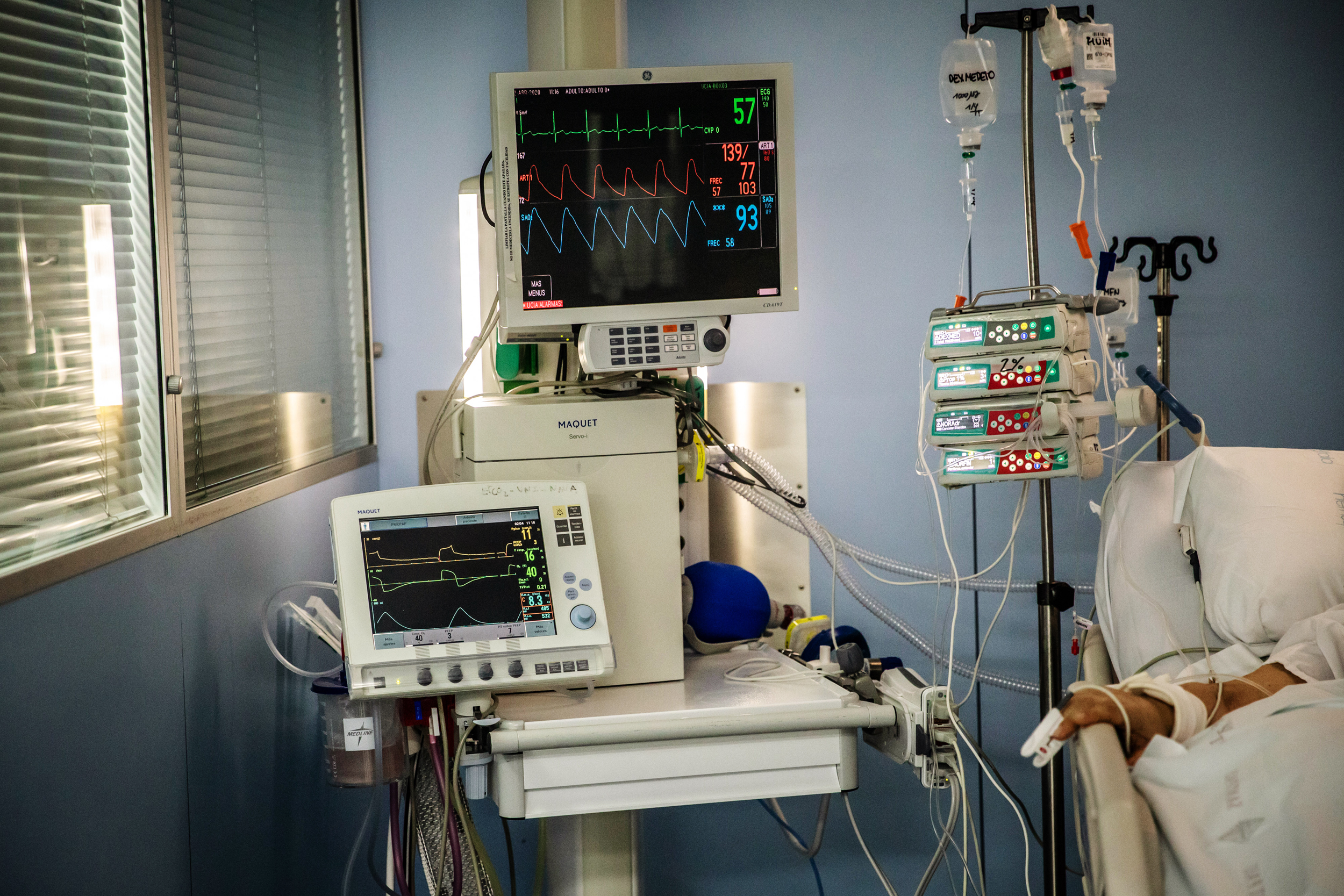
Whilst you are asleep, you won’t be able to breathe on your own, so doctors use a machine to help you breathe, and no, not a machine like an Alexa. The ventilator is like a robot that controls the patient’s breathing. It delivers air and oxygen to the patient’s lungs in a precise way to keep them safe and well-oxygenated while they are asleep.
You might wake up looking yellow
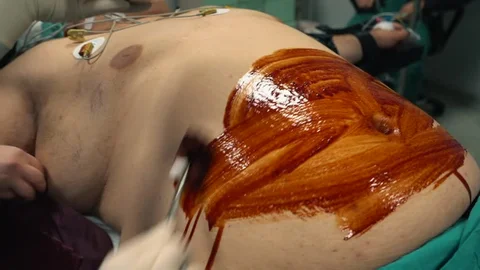
If the doctors are going to make any surgical cuts, they’ll usually rub iodine on you to ensure that there is no risk of infection from the surgery. If you wake up form surgery and parts of your skin look a little bit yellow, don’t worry, it’ll wash off and you won’t look like a cheeto anymore.
You can’t cough

Not that you’d need to because you’re asleep but, when you’re under anesthetic, you physically can’t cough. This is because your muscles in your throat are literally so relaxed that they wouldn’t even be able to cough, it also helps for when they start sticking tubes down your throat.
Grogginess

If you wake up from your surgically induced nap feeling like you need to go straight back to sleep, this is totally normal. Your body goes through a lot whilst undergoing surgery so if you feel really groggy and generally like you’ve been put through the ringer, just get lots of rest in order to recover.
A breathing tube will be inserted
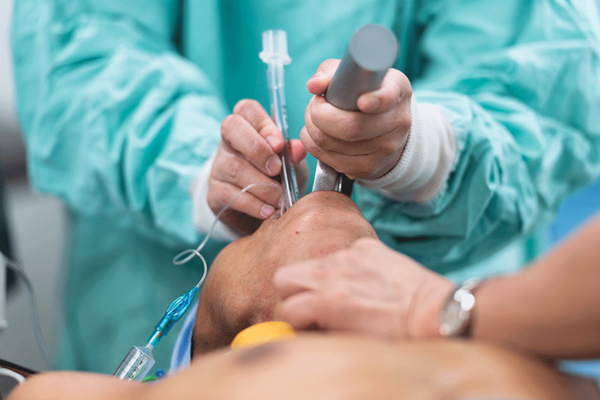
This is, surprisingly, something that many people don’t know. Even if your surgery is just on your leg, once you are knocked out, you won’t be able to breathe independently so a tube will be inserted down your throat and a machine used to help you breathe. Again, this is one of the main roles of a specially trained anesthetist.
You might be put in a hairnet

No, not like a lunch lady. You might notice that all of your surgeons who have hair will be wearing these, and they’ll probably put one on your too. This is just to ensure that the surgical environment is as sterile as possible. Sorry if that ruins your perm!
You might hear music

Some surgeons like to listen to music while they’re working, just like anybody who works long hours. This can help them to relax and make the process of a long surgery go smoother, so if you hear Taylor Swift start to play as you drift off, it’s not in your head, it’s probably your doctor’s Spotify playlist.
You might wake up
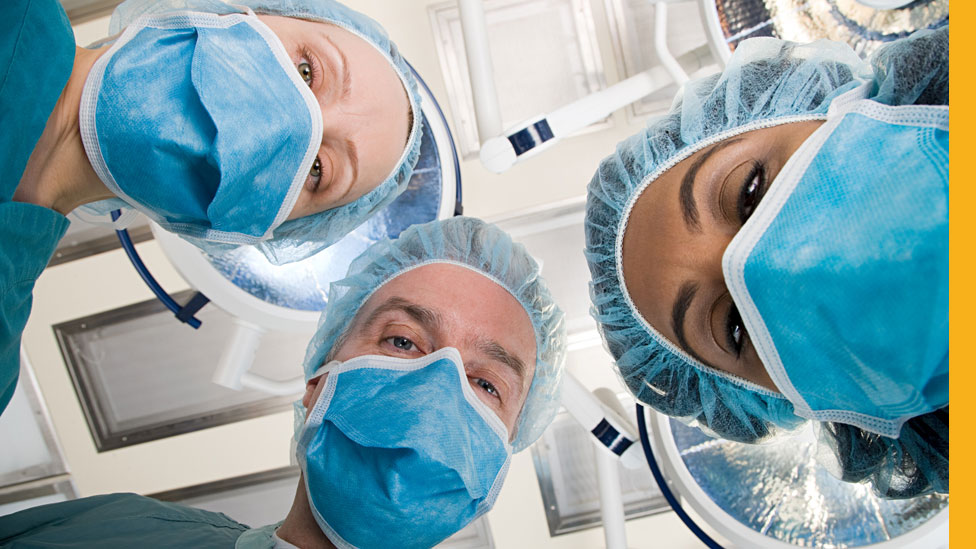
Not to freak you out or anything, but this does happen sometimes. The good news is that this is very rare and only ever really happens when the medical professionals miscalculate the dosage that you need or if there is some sort of emergency. This is something that many people fear but despite what you may hear, is extremely rare.
Now for some of the crazier stuff
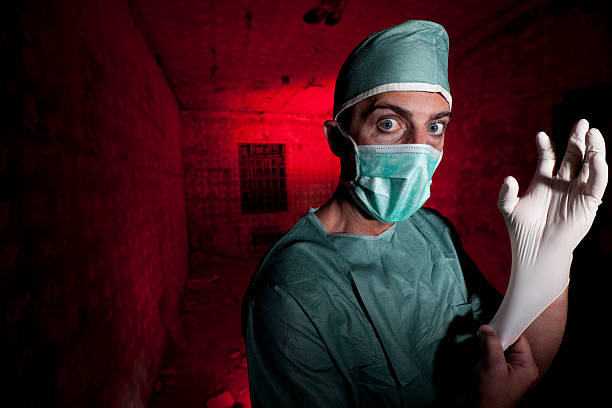
All of the things in this article have bene pretty commonplace occurrences during surgery, but what about some of the crazier stuff that you see on the internet? Does that kind of stuff really happen to patients during surgery? Can being put under anaesthetic really go terribly wrong?
There are some horror stories out there…

Unfortunately, yes, it can. The good news is that from the 60,000 people a day that are put under anaesthetic in the US, very few people end up with a surgery story that is newsworthy. However, the horror stories are probably gonna be the last thing you think about before you fall asleep on that table…
One guy even caught fire!

That’s right, a guy getting surgery literally caught fire. This happened because the surgeons were using dry swabs and an electrical machine that sparked while it was leaking oxygen; the perfect recipe for a flame. Despite this dramatic turn of events, the patient was not harmed and the doctors continued to carry out a successful heart surgery.
The patient who was pranked with stickers during surgery
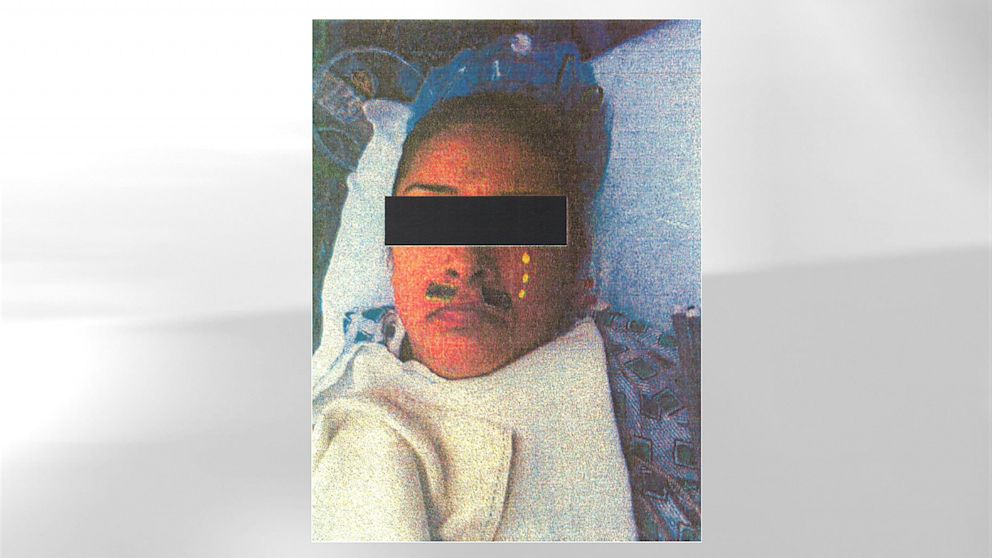
The staff at a hospital in LA were sued for putting stickers in the shape of a mustache on a patient whilst she was asleep. Understandably, she wasn’t happy and filed a lawsuit against the hospital for the prank that violated her dignity and endangered her health. Not funny guys.
One guy was able to play the violin
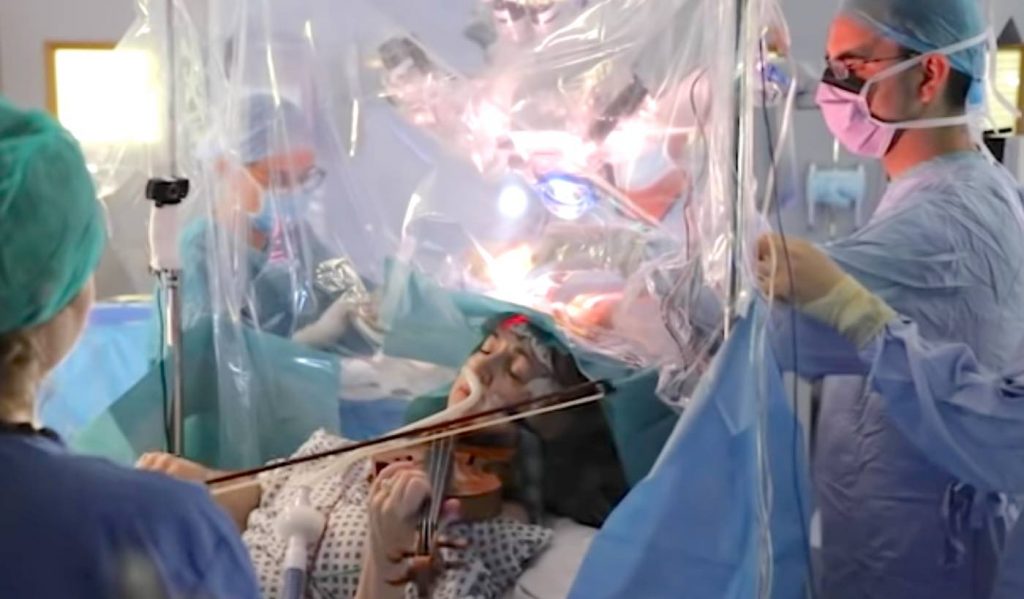
This is a pretty crazy one but there is literally footage of a talented violin player making beautiful music in the operating theatre, whilst surgeons literally perform brain surgery on him. This activity helped to keep his brain active during the complex surgery and was actually safer than knocking him out completely. The area was numbed with local anaesthetic, of course.
Doctors leaving utensils inside your body?
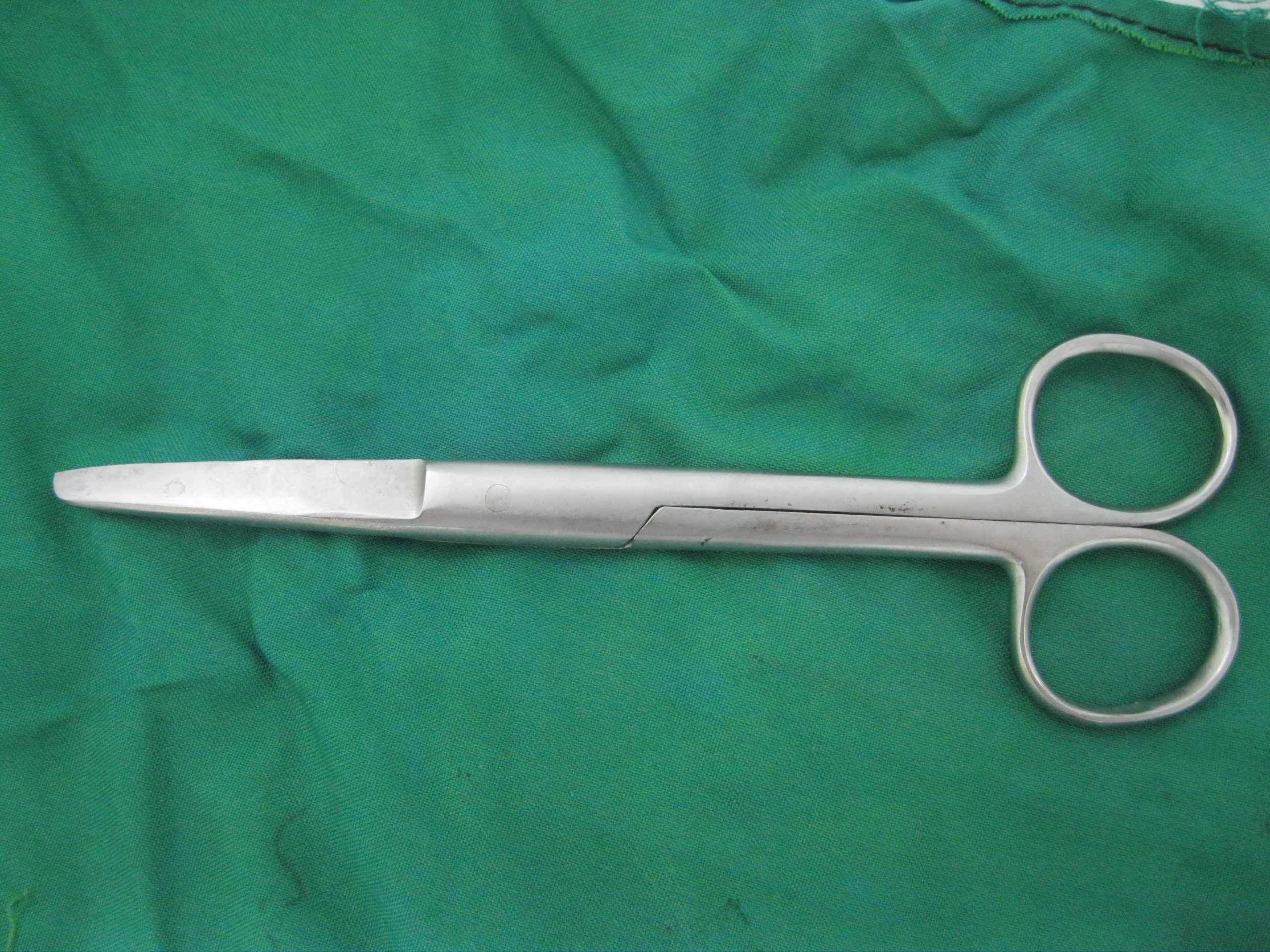
We’ve all heard this one, but there is some truth to it. A man in Vietnam went under anaesthethic, only for the doctor to find a pair of scissors that had been left in his leg from surgery three years ago. If it helps, these instances are more common in countries where X-rays are not regularly used.
You will probably loose some blood

We’ve all seen the episodes of Grey’s Anatomy where the operating room is like a bloodbath, and with this in mind, it’s no wonder that people are afraid of the blood aspect of surgery. However, it’s important to remember that blood often looks like a lot more than is actually there and losing some blood during surgery is totally normal.
Livestreaming your surgery?

A plastic surgeon, known as Dr. Roxy on TikTok, live streamed some of her procedures to her followers. She claimed that her patients always consented to this and that she was using these livestreams as educational content. However, the courts didn’t see it that way and she was stripped of her medical license. Hopefully, this won’t happen to you whilst under anaesthetic.
Medical students watching?

This may seem a little odd, but it is actually perfectly normal and a regular part of medical school. Demonstrations are carried out in operating theatres where a group of students may observe your surgery so that they are equipped to carry out the procedure themselves. So, don’t be surprised if you have an audience!
A doctor marking his initials…

One doctor was so proud of the job he did whilst stitching up a woman’s stomach after a C-section that he literally carved his initials into her stomach. Rightly so, the woman sued the hospital for medical negligence and was rewarded millions of dollars. The doctor responsible was also fired from his job.
The doctor who was sending eggplant emojis during surgery

If you know, you know. That’s right, this doctor was sending an explicit text or two whilst he was carrying out liver surgery. We all love someone who can multi-task, but maybe the eggplant emojis can wait until you aren’t literally slicing someone open… *Rolling eyes emoji*
An anaesthetist who went for lunch?

A patient actually died during this procedure because the anesthetist walked out during surgery to go and grab some lunch. If you’ve learnt anything from this, it should be that anaesthetists are the most important people in the room during surgery and this patient died because their body was left in a vulnerable position whilst under anaesthetic.
Singing?
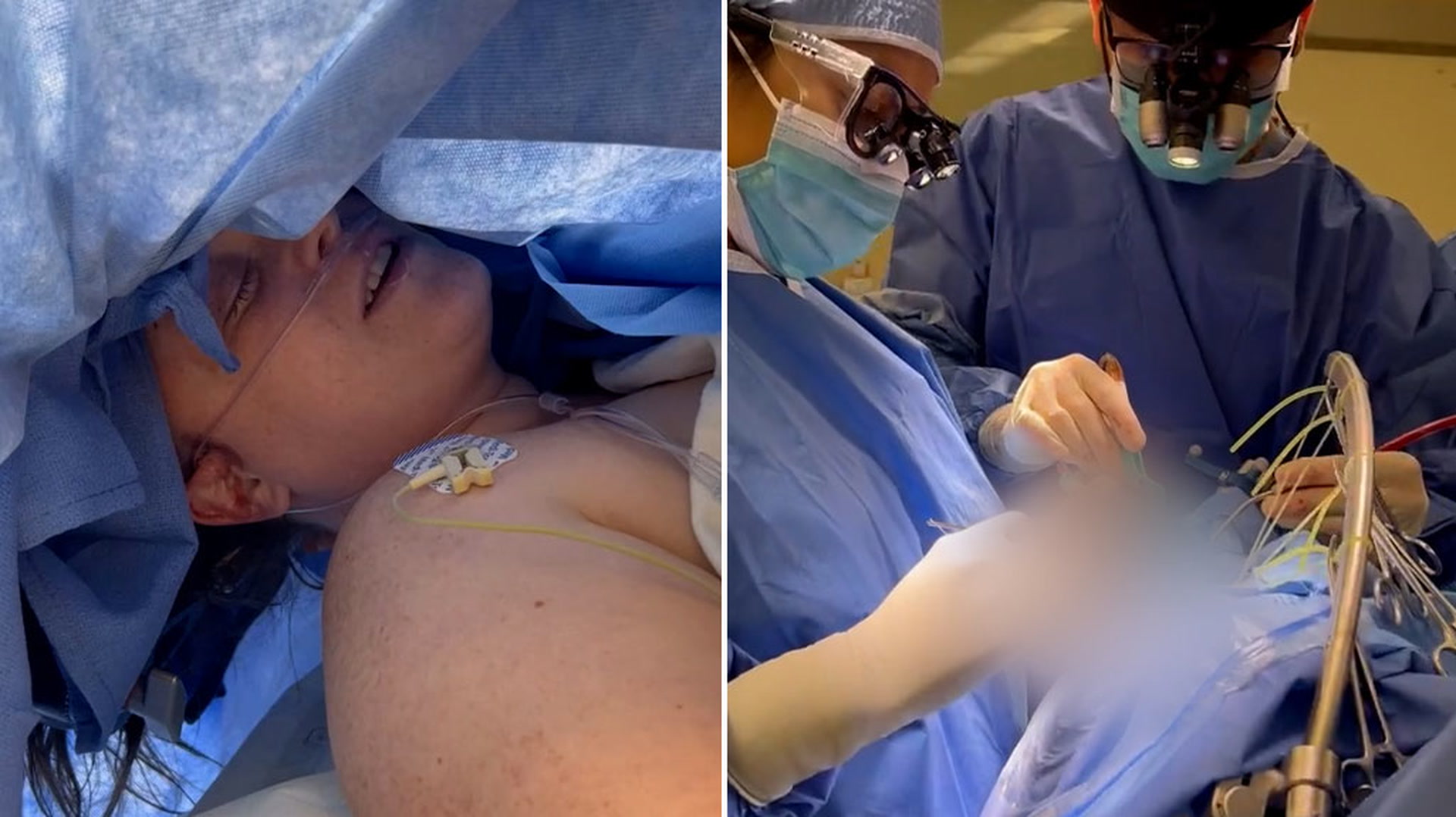
When Krystina Vied underwent surgery for a brain tumor, her surgeon had a unique approach to making sure he didn’t cut too deep. Vied loved to sign and described her very intense brain surgery as “fun” because she was allowed to sign throughout.
The doctor who walked out…

Cardiologist, Dr. Parvaiz Chaudhry, at Fresno Community Regional Medical Center in California, walked out before completing a patient’s surgery to attend a luncheon, leaving the poor patient’s chest cavity open on the table. Scary stuff.
Photos of your organs on Facebook?

A nurse in the UK was fired because she had taken photos of patients’ organs and uploaded them to Facebook. No one was identifiable in the photos, however, so a few people in the UK are walking around with famous organs and they don’t even know it.
Having your ankle turned into a knee?
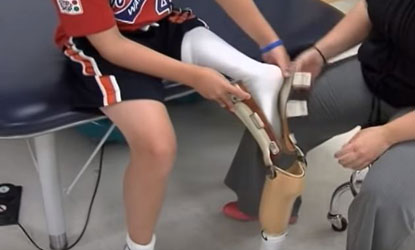
This is called a ‘rotationplasty’ and is used to help people with disabilities have a working limb for a prosthetic leg to attach onto. The foot is attached to the knee backward. Once a prosthesis is fitted, the ankle of the foot functions as a knee. If you’re getting this type of surgery, you’ll definitely know about it before you go under.
Using your teeth to fix your sight?

Another strange surgery that can take place on your body whilst under anaesthetic, this one is called Osteo-odonto-keratoprosthesis. Say that three times fast. Essentially, it involves the removal of a patient’s canine or premolar tooth and the surrounding bone; the technique uses the patient’s own tooth as the body is unlikely to reject it. A hole is then drilled in the tooth and a plastic lens is inserted.
Half your brain could be removed…

A hemispherectomy is a radical surgical procedure where the diseased half of the brain is completely removed and fully disconnected from the normal hemisphere. This is one of the most successful operations at stopping seizures, but sounds pretty daunting.
You could leave with two hearts

This is a pretty crazy thing to happen under anaesthetic, but it makes sense when you think about it! Heart transplants are likely to be rejected by the body they are placed into, so doctors just put two in there in the hopes that one of the hearts will be accepted by the body. This is called a piggyback transplant.
What about a different head?
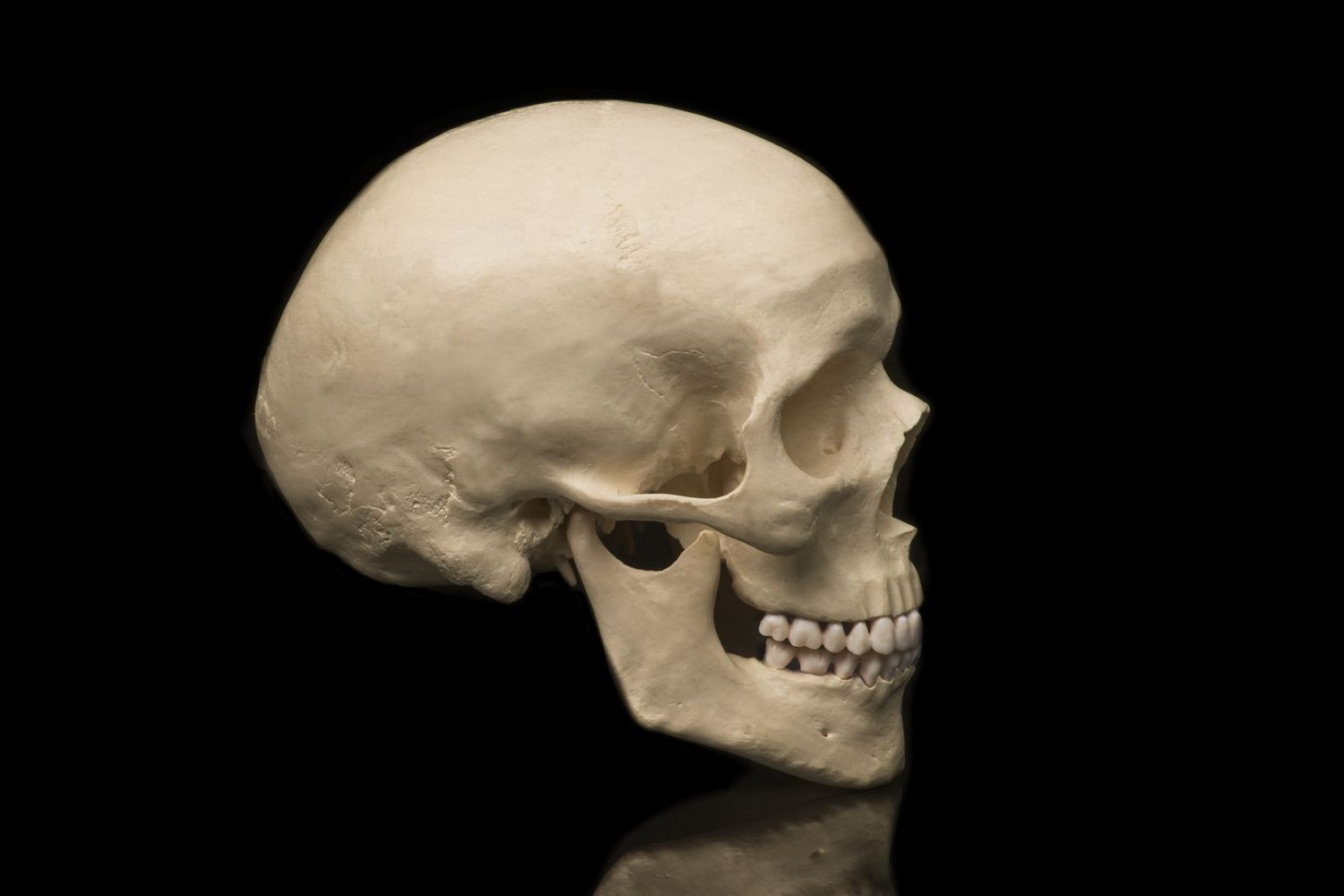
If you were to undergo this surgery, you would literally wake up from the anaesthesia as a different person. Although no successful head transplant has been done, doctors expect this to be possible in the near future. Although this seems pretty jarring, it could help those with disabilities and brain injuries.
Hopefully you don’t get the wrong organs…
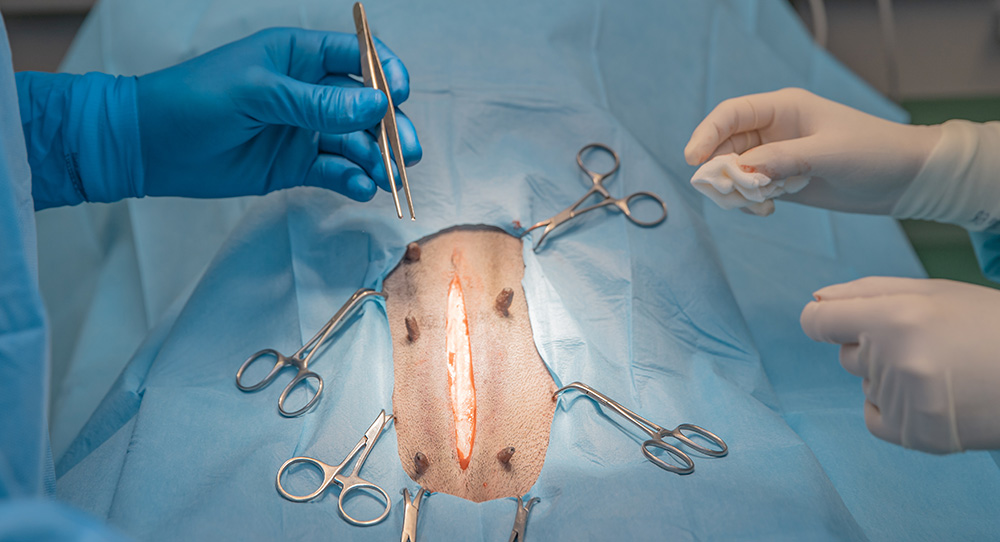
A girl was given the wrong heart and lungs in a medical mistake that led to her death. This mistake was put down to human error and the patient died because the transplant organs she was given didn’t match her blood type.
Heart surgery for a respiratory infection?
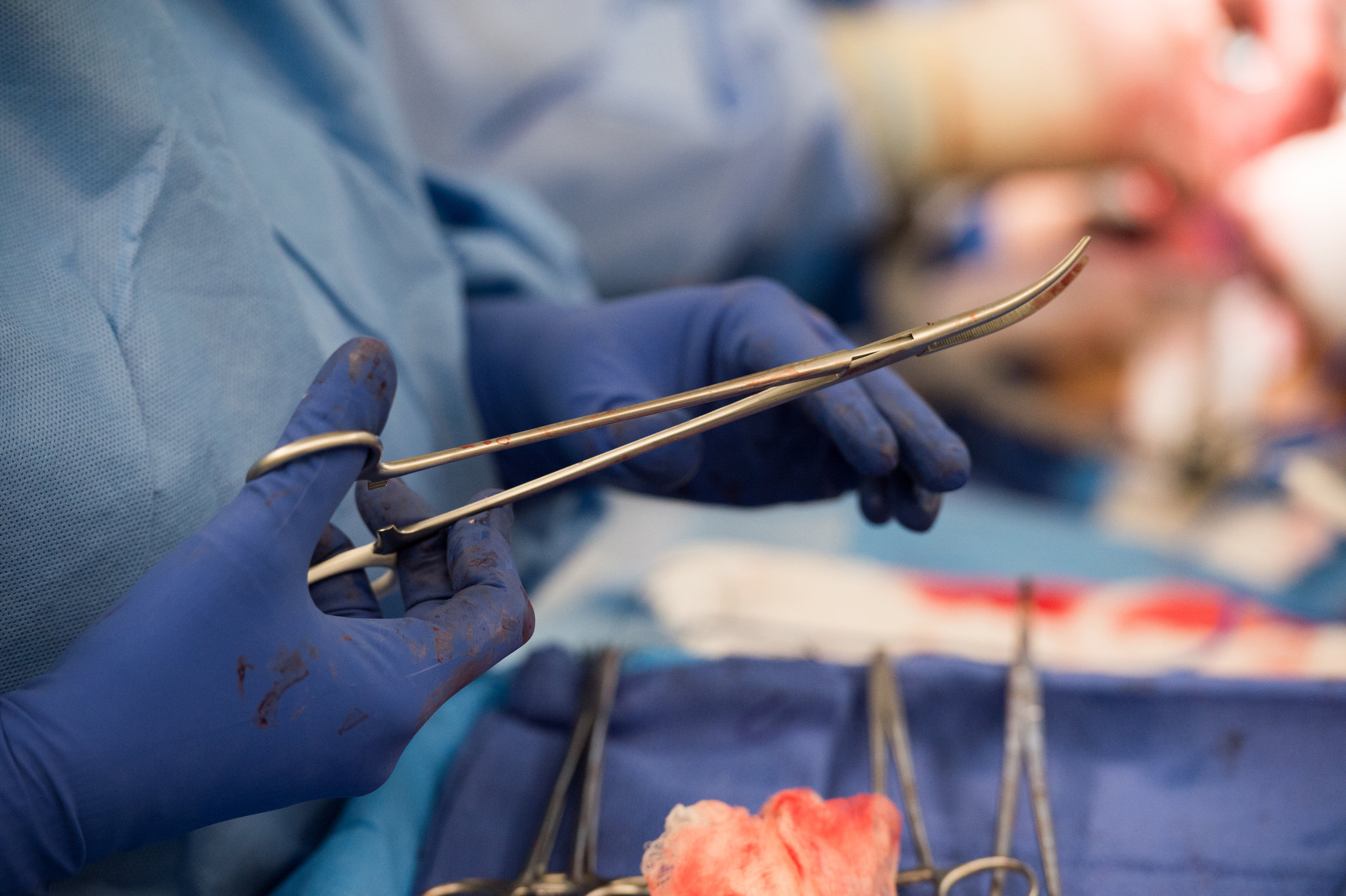
Okay, we all make mistakes at work, but surely you’ve never given someone the wrong type of surgery. Imagine going through the whole process of being put under anesthetic, just to wake up and find that they’ve operated on your lungs, when your heart was the problem. Yes, this really did happen.
Hopefully you don’t get confused for someone else
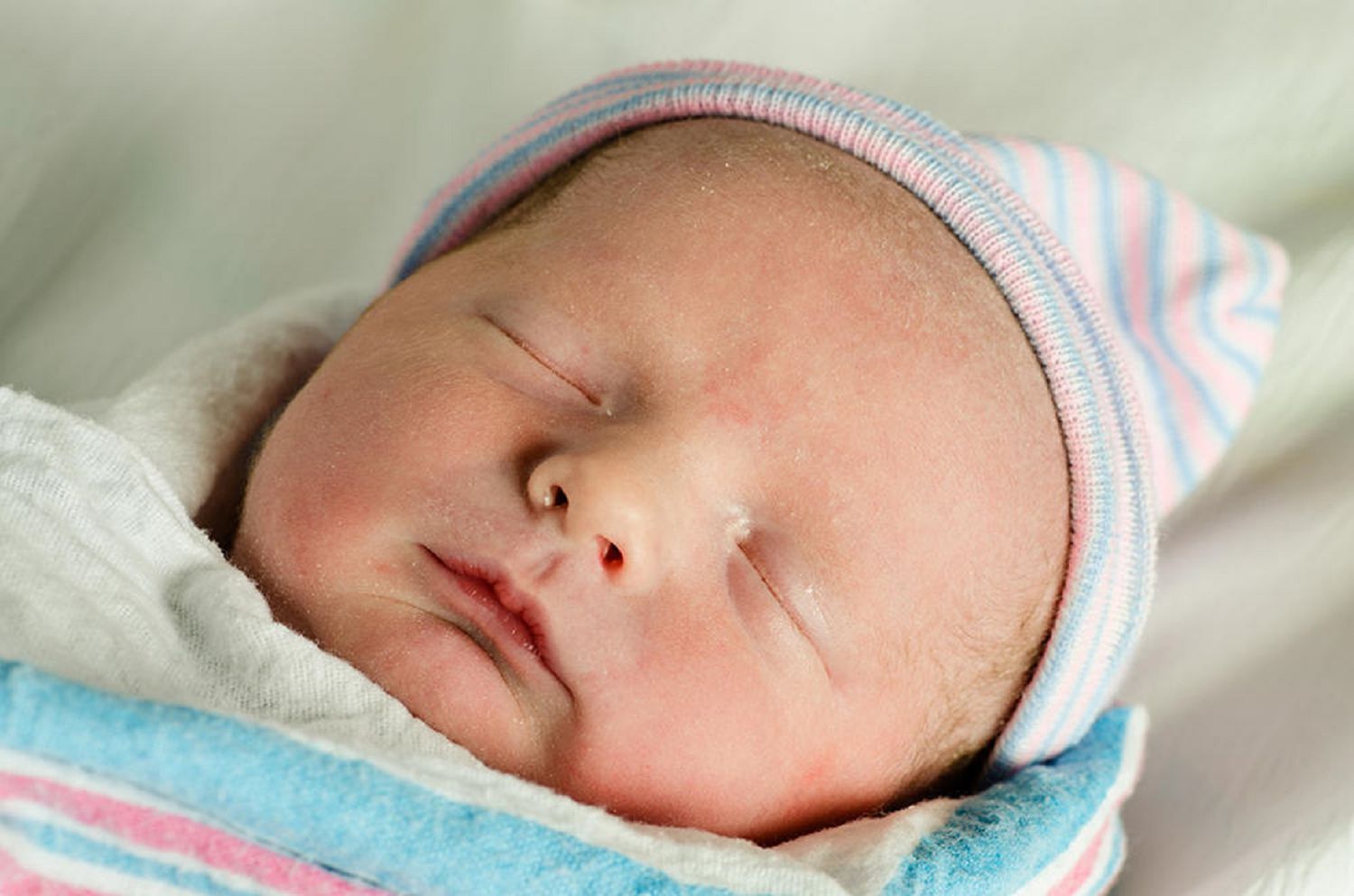
A baby in Tennessee underwent an unnecessary dose of anesthethic, and subsequent surgery, after nurses got him mixed up with another infant with the same name. His mother thought he was going for a routine check-up and was shocked when she found out what really happened.
Or have the wrong limb amputated

Yeah, this one is pretty rough. A man was placed under anaesthetic and believed he was having a his left leg amputated. However, when nurses were marking up the patient before the surgery, they marked up to the wrong leg and the man subsequently lost the leg that was working perfectly fine.
What about getting the wrong organ removed?
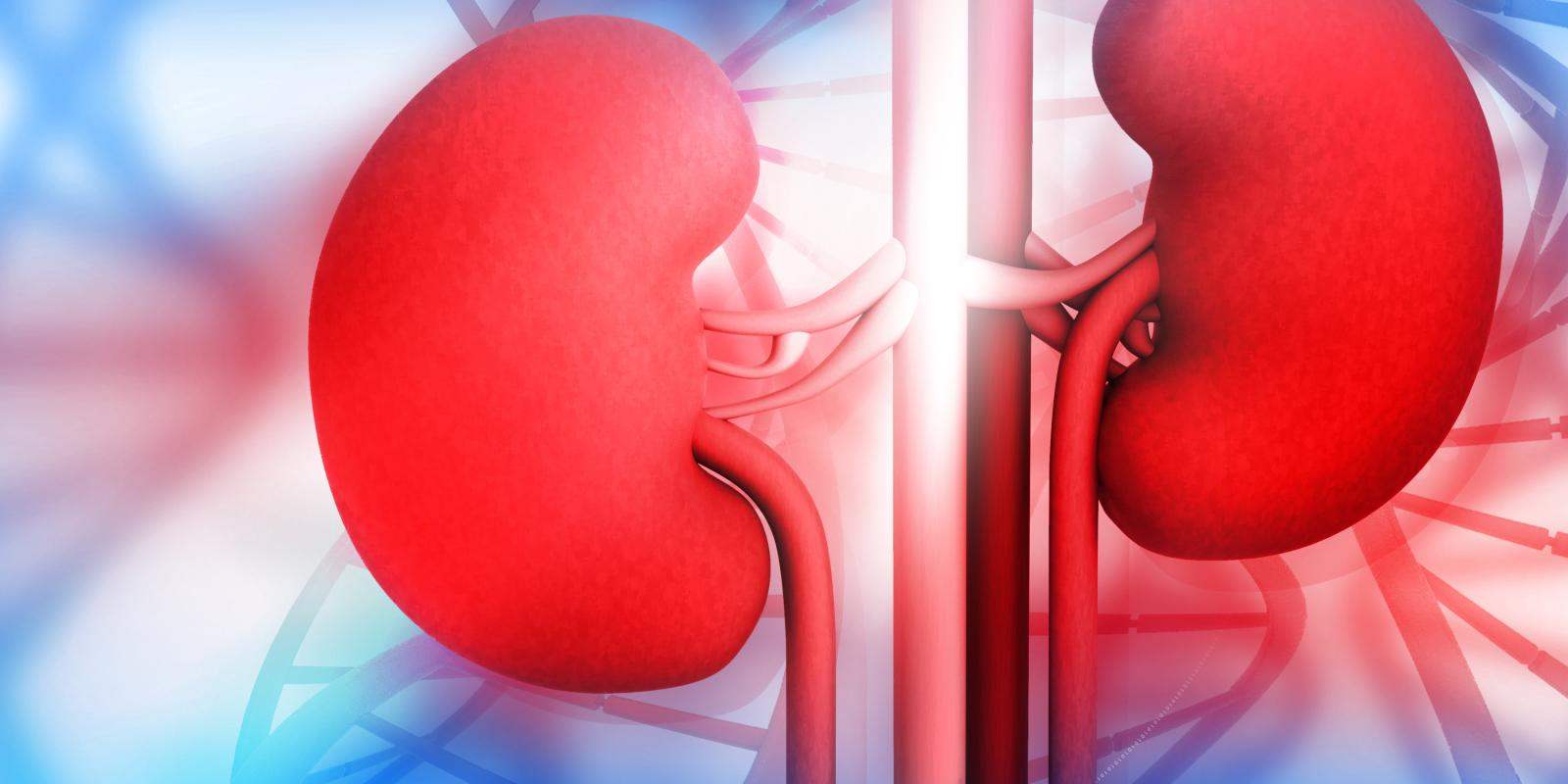
A woman who went in for surgery to remove a diseased kidney instead had her spleen removed, and now she is looking to be paid for that big-time mistake. This one works out pretty well because you don’t really need your spleen and she was compensated with millions of dollars.
Most things that happen are totally normal

All of the scary stories aside, most things that happen to your body before, during or after surgery, are totally normal. You might feel some strange sensations or symptoms that make you feel worried but the chances are that it’s nothing your doctor hasn’t seen before.
You’ll be in safe hands, usually

With all of those medical mistakes in mind, it can be easy to feel like surgery and being put under anesthetic is a massive risk. It actually isn’t. Surgery is completely safe and something that could change your life, these medical mistakes are highly unlikely.
Confusion

Going through all of that stress in one day can have a massive toll on your body. It can be really disorientating to wake up with doctors or nurses over the top of you, all those bright lights, and not to mention the effects of whatever pain medication you are on. Any confusion after surgery should pass after a good long sleep.
Itching

Certain types of anaesthesia cause the body to release histamine, which is the chemical that your body releases when it comes into contact with pollen on a Spring day. However, waking up with this reaction after surgery doesn’t mean you’re allergic to the anaesthetic and should wear off after a few hours.
You could wake up in different clothes

If you went to sleep in your comfy clothes that you brought to hospital, don’t be surprised if you wake up in one of those scratchy hospital gowns that may or may not be totally open at the back. Don’t be shocked if this happens, it’s probably just to make you more comfortable post-surgery.
You’ll feel much better when you wake up

Most importantly, when you wake up from surgery and get the news that everything went as planned, you’ll probably feel a massive sense of relief. Sure, you might still be in some pain and be really tired, but you know that the worst of it’s over and it’s time to recuperate in bed with lots of Netflix.
